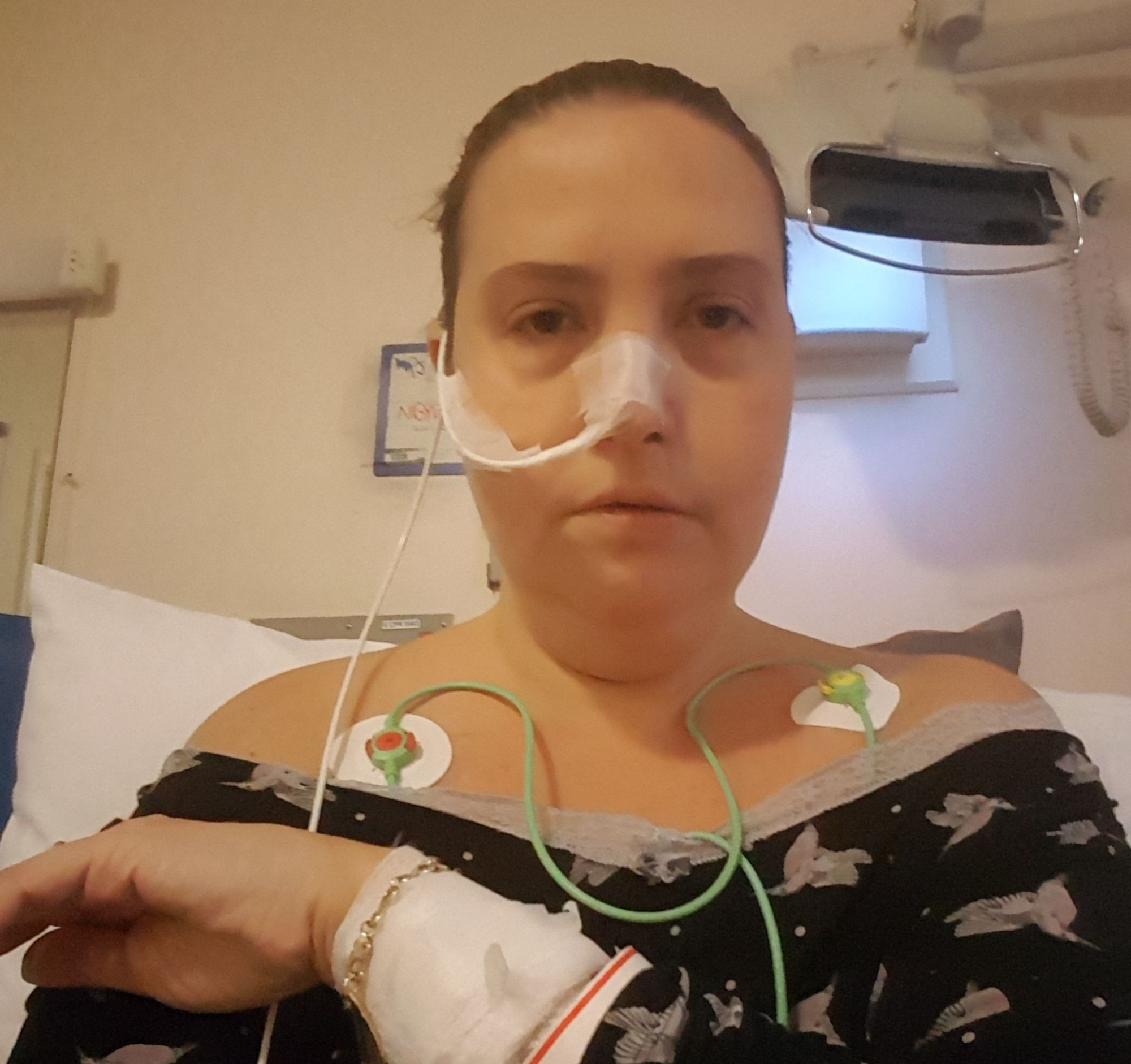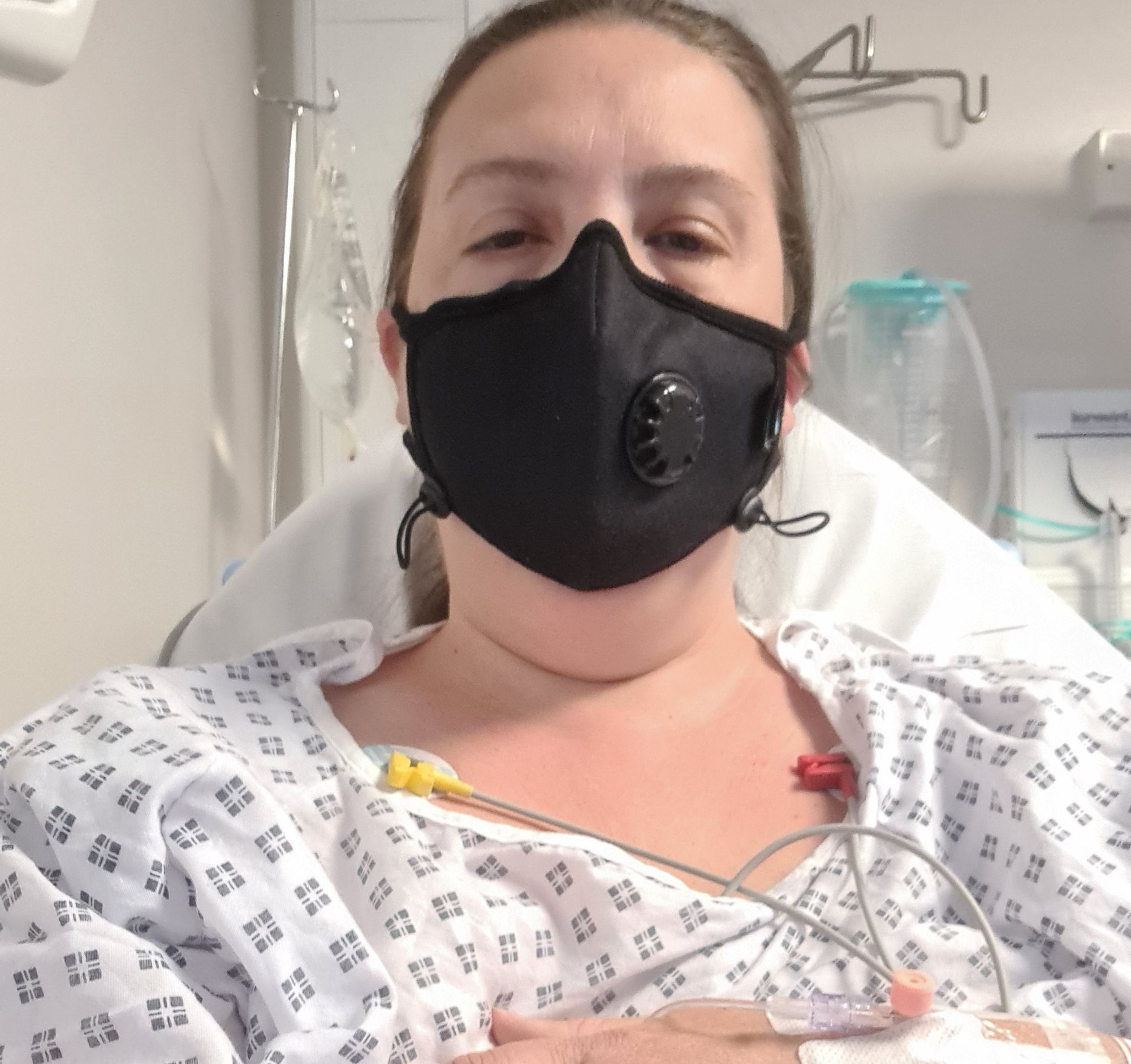Suzy's story
I am no longer the person I was, or who my husband married. I am afraid of everyday situations, not because of irrational fears, but because there are so many things that can cause me to have potentially life-threatening reactions.
HOW IT BEGAN
A reaction to surgical Mesh from a surgery led to my MCAS diagnosis when I was 40. Even with treatment, MCAS continues to impact all aspects of my personal and social life; such as the need for regular hospital admissions because of anaphylaxis. After months of extensive testing, the doctors were completely baffled. All my tests were coming back normal. When I found out that titanium clips had been left inside me, I asked for a metal allergy test, which produced a weakly positive result.
During this process, I was diagnosed with Hypermobility Ehlers Danlos Syndrome (HEDS). I had always been hypermobile with stomach and joint problems through my life, as well as other strange problems as a child. I knew there were certain foods and drinks that didn’t agree with me but this didn’t affect my life too much. While interesting, this diagnosis didn’t explain my current symptoms.
After months of extensive testing, the doctors were completely baffled.
TOWARDS A DIAGNOSIS
After another operation to remove the titanium clips that were left inside me, I quickly made an almost complete recovery. However, the operation left me with an incisional umbilical hernia, and I had the hernia repaired using surgical mesh. Within days the problems started again, and all the previous symptoms returned. The doctors began more extensive testing, looking at more and more unusual conditions. During this time, a fellow HEDS sufferer mentioned MCAS to me.
When researching MCAS I found similarities between my symptoms and those attributed to MCAS. I saw a private immunologist with an interest in MCAS, who confirmed that my symptoms were consistent with the condition. Although results of tests were inconclusive, he explained that testing for MCAS is not always reliable and is notoriously difficult. He started me on sodium cromoglicate, a mast cell stabilising drug, which unfortunately triggered my first anaphylaxis reaction. Thankfully there is an alternative called ketotifen, which I didn’t react to, that alleviated some of my low level and moderate reaction symptoms. Since I met two of the diagnostic criteria for MCAS he was happy to proceed with more specialized medications and provide a referral to have the surgical mesh removed.
My doctor explained that testing for MCAS is not always reliable and notoriously difficult.
GETTING SUPPORT
After my first dose of medication, I had a major reaction followed by a period of major instability, where I had 10 anaphylactic reactions in 3 weeks. I spent a lot of time in hospital, was unable to eat for long periods of time, and at one point could not even drink water. The only medications that stabilised me long enough for the mesh removal operation were high doses of steroids and antihistamines.
I still suffered from low to moderate level reactions to a number of triggers including airborne pollutants, pollen, chemicals, beauty products, perfume, foods, exercise, stress, temperature change, and high temperatures. For a while I couldn’t even have the windows open or leave the house without wearing a VOG mask. I have to follow a special low histamine diet, which means there are lots of foods I cannot eat including all processed and pre-pared foods, alcohol and dairy foods. Consequently, I have had to give up work because I still experience flushing, heart palpitations, dizziness, chronic insomnia, hair loss and chronic fatigue.
After almost 2 months of being stable whilst taking oral steroids, I started repeatedly experiencing anaphylactic reactions to various triggers that put me in hospital. I then started having severe adverse reactions to the adrenaline that is essential to anaphylaxis treatment. I kept having anaphylactic reactions more frequently, this led to having two within 48 hours at one point, which left my body in a very hyper reactive state. Because of this I was unable to drink water or eat any foods for four weeks; doctors had to step in and assist me with nutrition as I became dangerously malnourished, so I ended up with a nasogastric feeding tube. My doctors were seriously concerned about the risk to my life if I continued having anaphylactic reactions, and I was put back on high dose steroids. I have been referred to a specialist allergy clinic for consideration of Xolair (omalizumab) injections because although my current medications do help my symptoms, they are not enough to control the condition. My story is far from over.
My conditions aren’t only physical battles every day, but also psychological ones. I have to deal with being unable to work and being financially and generally dependent on my partner for simple day to day tasks. I realise I am no longer the person I was, or who my husband married. I’m unable to be the mother I want to be for my son, because I can’t do a lot of the practical care for him. Maintaining friendships is difficult due to finding most social situations physically challenging.
Over a 5 month period I had 22 anaphylaxis reactions, over 100 doses of adrenaline administered, had 14 hosptial admissions and spent 47 nights in hospital.
READ MORE: SENSITIVE IMAGE WARNING
Suzy would like to share these images alongside her story, from when she was in hospital.


Mast Cell Action: What can be done to help patients like Suzy?
MCAS is a poorly recognised condition within the NHS. It has no natural ‘home’ in any one specialism, with patients often having to see multiple doctors for various symptoms without a conclusive diagnosis. There is a need to raise awareness around mast cell disorders, listen to patient experiences, and support more research to better understand and treat the condition effectively. It is our ambition that all patients will be supported in a way that enables them to bring their condition under control and live a more normal life.
The research into MCAS is growing, particularly in the US and Germany, as is clinical recognition of the symptoms. MCAS patients can have many similar recognisable symptoms, it just takes time to take a detailed history and recognise the patterns.
Become a friend
Sign up to become a Friend of Mast Cell Action so we can keep you up to date on our progress and on how to get involved in our latest campaigns and initiatives.
Donate
Mast Cell Action relies entirely on the generosity of people like you. Please make a donation now and together we can make a difference to those affected by MCAS.







